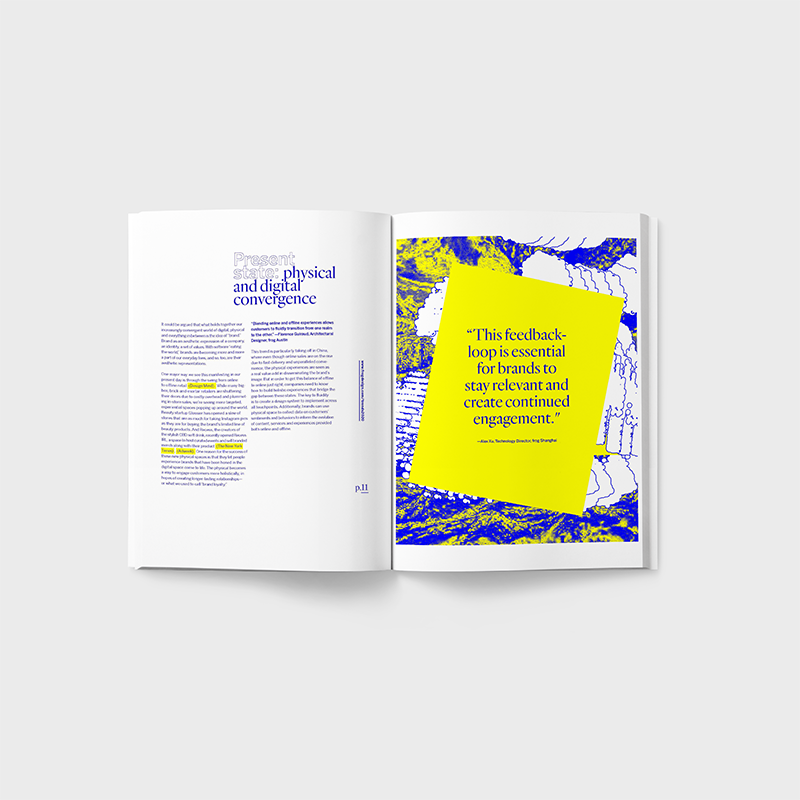
Work of the Future Rejects Limits of the Past
Present State: Innovation Requires Inclusivity
No longer is having an inclusive mindset a ‘nice-to-have,’ an informal, grassroots effort within an organization, or a page to brag about in a corporate responsibility report. Today, inclusivity is a social obligation, one that demonstrates the need to more accurately reflect the makeup of the world we live in, the customers we create products for and the rich, varied perspectives we need to harness in order to enable the most intelligent and accessible solutions. Women, people of color, people with disabilities, seniors, those who identify as queer—these are the voices that will shine in 2020 and beyond in life, work and in politics. Expect to see a wave of change with more companies holding themselves accountable and making intentional strides toward diversity, inclusion and equity in the workplace and beyond. The value these voices bring will be recognized, celebrated and paid.
If your company does not already have an inclusive perspective, you’re already outdated.
Going forward, companies will need to look inward to reimagine their organizations to reflect these shifts. Over the years, savvy businesses have accepted that in order to differentiate their offering and to build lasting brand loyalty with their customer base, they need to deliver exceptional experiences. Increasingly, however, companies will need to explore how their own employee experiences affect their ability to do so. Growing significance will be placed on how well businesses can embrace these major workforce changes, to better reflect global economic shifts and meet evolving societal standards placed on the value of work more broadly.
Future State: Binaries Will Permanently Breakdown
A major way we will see the work of the future take shape is in the rejection of conventional labels placed on what it means to be working in the first place. Several clear binaries have defined the workforce of the previous century: Full-time or freelance? Working or retired? Employed, contractor or member of the ever-growing ‘gig economy’? In 2020 and beyond, these old binaries will not carry much weight, especially if used as excuses for subpar customer and/or employee experiences.
The most innovative companies will see these changes as an opportunity to reimagine how they relate to their workers and in doing so will unlock greater potential from their greatest resource: their people.
Already, approximately 150 million people in North America and Western Europe have become ‘independent contractors’ (Harvard Business Review). By 2025, over half of the US workforce may participate in the gig economy (World Economic Forum). Now, more than ever, experience matters for these workers. As the faucet for venture capital closes and market subsidies end, the fight for the highest skilled, most loyal gig workers will be won by those who can codify and deliver meaningful, lasting experiences to all regardless of their employment status. As with any job—or any human activity for that matter—workers of all ages, from all backgrounds, in all roles have a need for personal realization and fulfillment. This is where platforms with learning tracks, cross-training opportunities or other skill-enriching options will differentiate.
A sense of belonging and options for community-building will become more important, especially as companies aim to create a longer-term relationship with gig workers. Tribes matter. Water coolers matter.
The rise of technology platforms that enable the gig economy and the demographic shift created by aging Baby Boomers, who are looking for an option between work and retirement, will only continue to render old binary distinctions inefficient. We see companies like OXO and Alibaba as examples of companies proactively taking on user segmentation and designing interfaces and interactions around aging populations, but plenty more will follow. With more global populations positioned to see an increase in aging demographics in the coming decades (United Nations), designers will have a critical role to play in serving the needs of all, not just the few.
As we close in on a new status quo, designers and businesses will need to think about universal design and facilitate services for the needs of the elderly.
We respect your privacy
We use Cookies to improve your experience on our website. They help us to improve site performance, present you relevant advertising and enable you to share content in social media. You may accept all Cookies, or choose to manage them individually. You can change your settings at any time by clicking Cookie Settings available in the footer of every page. For more information related to the Cookies, please visit our Cookie Policy.






